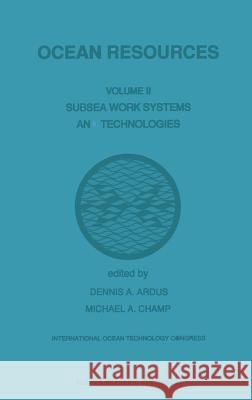Ocean Resources: Volume II Subsea Work Systems and Technologies » książka
Ocean Resources: Volume II Subsea Work Systems and Technologies
ISBN-13: 9780792309536 / Angielski / Twarda / 1990 / 240 str.
Ocean engineering is generally considered to be concerned with studies on the effects of the ocean on the land and with the design, construction and operation of vehicles, structures and systems for use in the ocean or marine environment. The practice of engineering differs from that of science in both motivations and objectives. Science seeks understanding of the principles of nature in terms of generalizations expressed as laws and classifications. Engineering seeks the application of knowledge of the physical and natural world to produce a benefit expressed as a device, system, material, and/or process. From the standpoint of the financial sponsors of an engineering project, the ideal approach is one of minimal risk in which only proven knowledge, materials and procedures are employed. There is frequent departure from this ideal in anticipation of the increased benefit expected from a large increase in performance of a structure or device. The process of acquiring this new capability is engineering research. Historically, ocean engineering developed with the application of engineering principles and processes to the design of ships and, later, to the machinery that propels them. In most societies, naval architecture and marine engineering are recognised as the origin of ocean engineering. In fact, the design of a ship constitutes the original systems engineering programme involving hydrodynamics/fluid flow, structural design, machinery design, electrical engineering and so on as well as requiring knowledge of the ocean environment (waves, corrosion, etc.).











